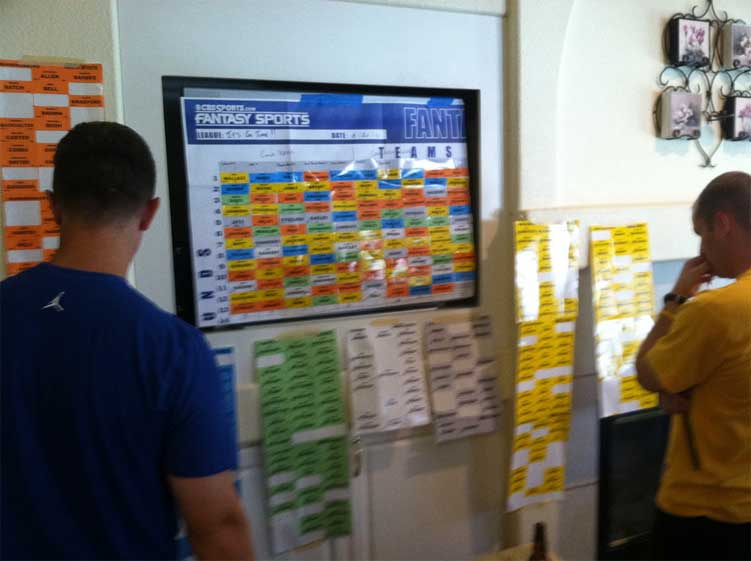Fantasy Football is an easy way for fans to compete and socialize through applications and the web. Participants bet on individual NFL players with the chance to win money and other prizes. There are fantasy leagues and daily fantasy picks. Fantasy leagues are typically low-risk wagers amongst a group of friends, and daily fantasy picks are bets placed every day competing with people around the world. It was predicted that daily fantasy sports would generate almost $3 billion in entry fees in 2015.
Popular daily fantasy gaming sites such as Fanduel and DraftKings increase growth by the thousands every day. With such a drastic rise in popularity, more people are asking: “Are these sites a form of entertainment, or are they becoming a new way of gambling?” On one hand, there is opportunity to expand the job market and increase exposure for the NFL and its sponsors. On the other hand, Americans are more at risk of debt from their losses.
As of now, fantasy football games are considered “games of skill” not “games of chance,” meaning there is no form of gambling taking place. However, every game is a bet on each player’s performance, which is unpredictable and purely based on luck. By definition, gambling is “the activity or practice of playing at a game of chance for money or other stakes.” Sure sounds like fantasy football to me.
Either way, many are worried that fantasy football is encouraging gambling behavior with young people and contributing issues to those with existing gambling addictions. Not only are fantasy football sites easy to join, but they also have few regulations. Until these games are recognized as “those of chance,” the fantasy sporting gambling debate will continue.
Article Written by: Emma Rusnak

